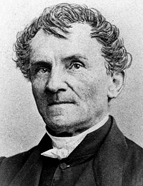

In another letter dated 28 February of the following year, 1840, addressed by Santarém to his nephew, the 8th Count of Ponte, he informs us that “I made more than 150 notes and observations for the Portuguese and French translations of the History of Portugal recently written in German by Schaefer” (Viscount of Santarém, Correspondence..., vol. VI, p. 46). The French edition was published later that year and contains notes that may have been made by Santarém: for example, those referring to D. Duarte, his works and the review written about them years earlier by Cândido José Xavier. However, these notes are not marked as having been written by the Portuguese author.
As far as we know, the Portuguese edition of Schaefer’s work was never printed in Paris. The French edition of the first volume of Geschichte von Portugal, published in Paris in 1840 by Parent-Desbarres, contains some curious details. The first is that it brings together in a single volume the material from the first two volumes of the German edition (which covered the period from 1095 to 1495), leaving out, however, the reign of King John II (1481-95). The second is the inclusion of a note by the Viscount of Santarém concerning the extremely important location of the manuscript of the Crónica da Guiné by Gomes Eanes de Zurara. The third is the omission of the original prefaces. The last is the poor quality of the translation (by Soulange-Bodin), which was accused of being careless.
One of the critics of the French translation was the eminent Portuguese-Brazilian historian Varnhagen, son of a German father, who in the early 1840s was part of the Brazilian diplomatic representation in Lisbon. He was responsible for reviewing the French edition by Parent-Desbarres, translated by Soulange-Bodin, in the pages of the prestigious Revista Universal Lisbonense, in issue 2, dated 7 October 1841. In his text, Varnhagen praises Schaefer’s new way of writing history, which is narrative and based on sources, in keeping with the German spirit and far removed from what he considers to be Guizot’s philosophising. On the other hand, however, he criticises the quality of the translation (admitting that he knew German well enough to make such judgements) and the lack of rigour in the language used in the notes.
This work is financed by national funds through FCT - Foundation for Science and Technology, I.P, in the scope of the projects UIDB/04311/2020 and UIDP/04311/2020.
